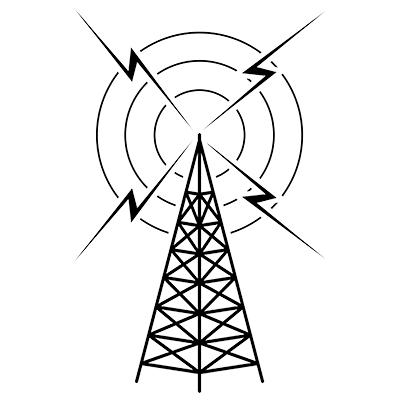
CQ CQ CQ de N9QQB… Say what?
“CQ” is the ham radio signal meaning “I’m looking for someone to talk to.” and N9QQB is my FCC-assigned callsign, for ham radio. So it means, hey, let’s talk. My wife has her own callsign.
Amateur Radio is an exciting hobby with a huge array of modes and bands to explore. You can chat with others around town from your home or vehicle, or converse with people in other countries. Voice modes are popular, with a variety of types available. Morse code enthusiasts abound- there’s no better way to punch a signal through huge distances and difficult atmospheric conditions. But the requirement to learn Morse code to get a ham license was done away with years ago. Many hams use various digital modes, which also travel very far, and even digital voice modes. Hams are also allowed to transmit images and video too.
Are you a volunteer? Several organizations specialize in assisting public service, law enforcement, and disaster relief organizations, providing communications support in impacted areas.
Amateur Radio is a hobby, but one that requires a license. Amateur radio is regulated under FCC Rules Part 97. Getting a license requires passing a multiple-choice test, but you find the questions (and the answers) online, so you can study. There are hundreds of study guides available for the various license classes. Each class requires its own exam, and each entitles you to more privileges on the air.
- Technician Class: This is the entry-level license type. There is a pool of 650 questions in the exam, and when you take it, you will be asked 35 of those questions. The entire pool is published, and available to study. The fees associated with the licensing process are small. The bands and modes available to the Technician Class licensee are used mostly for local, statewide, and regional communications, and under good band conditions, can cross the continent.
- General Class: This next level license allows a lot of privileges on bands well suited to world-wide communications, as well as the Technician Class ones. You must hold a Technician Class license first, then take an additional 35 question exam. All possible questions are published and freely available.
- Amateur Extra Class: This license class conveys all available U.S. Amateur Radio operating privileges on all bands and all modes. Holders of a General Class and Technician Class license and take a 50 question exam, and if passed, receive the Amateur Extra license. The entire question pool is published.
More information: The American Radio Relay League is the education and advocacy resource for Amateur Radio, and is a vast trove of information. Their Licensing, Education & Training section is an excellent place to start.
